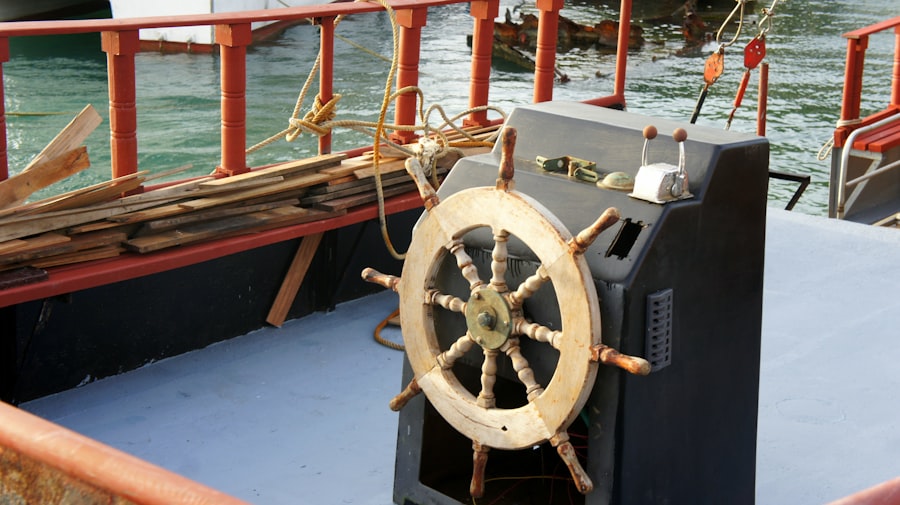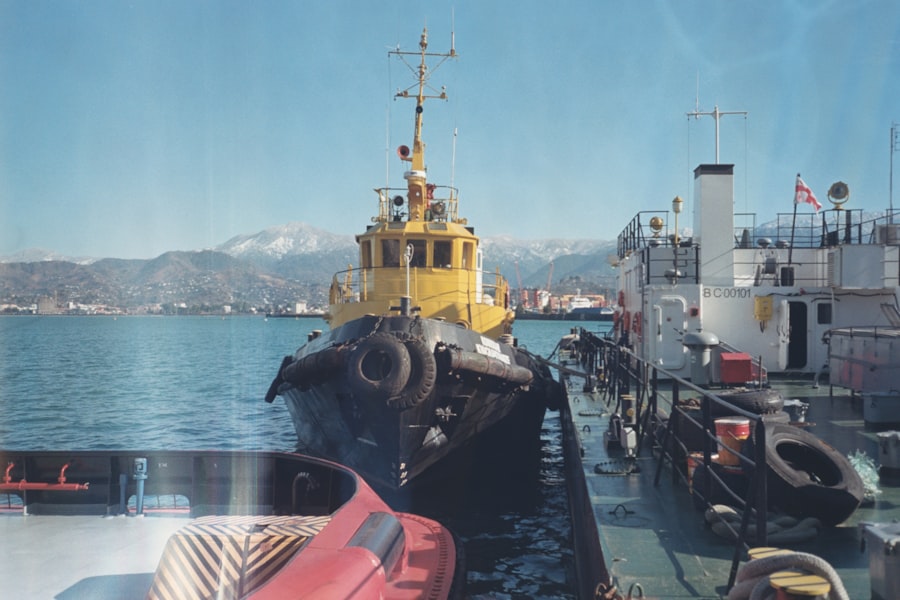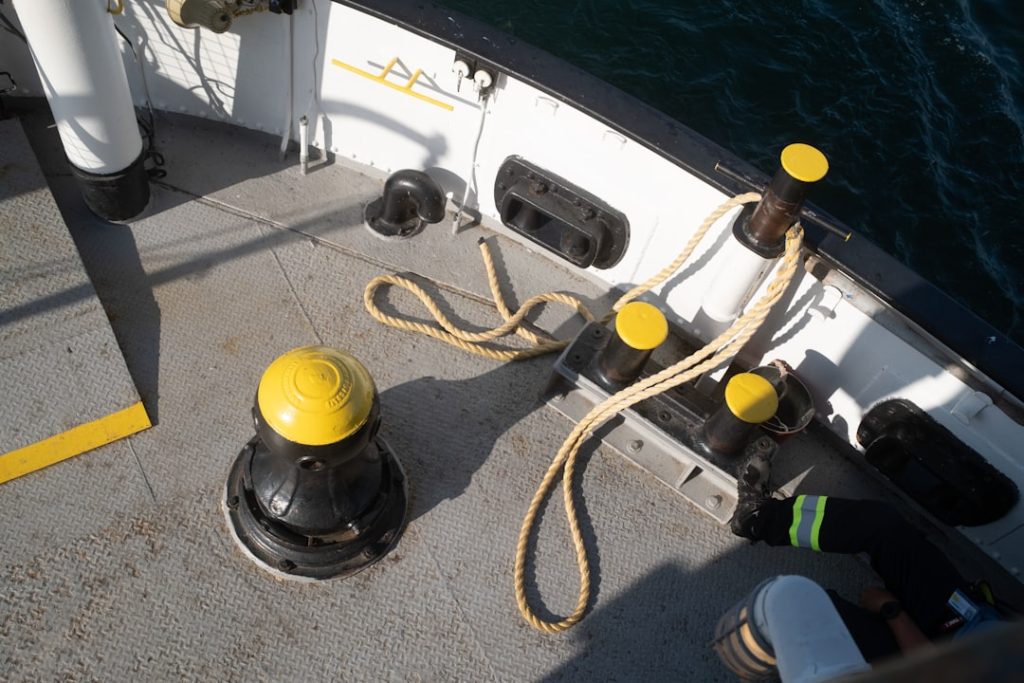The marine industry is a unique sector that demands high-quality equipment, particularly when it comes to motors. A used marine motor can be an excellent investment for boat enthusiasts, offering a balance between affordability and performance. The importance of quality in this context cannot be overstated.
A reliable marine motor is crucial for ensuring safety on the water, enhancing the overall boating experience, and prolonging the lifespan of the vessel. When purchasing a used marine motor, buyers must prioritize quality to avoid potential issues that could arise from subpar equipment. Quality used marine motors can provide significant advantages over new models, particularly in terms of cost-effectiveness.
New marine engines can be prohibitively expensive, often costing thousands of dollars. In contrast, a well-maintained used motor can deliver similar performance at a fraction of the price. Moreover, many used motors come from reputable manufacturers known for their durability and reliability.
This means that with careful selection, buyers can find motors that have been built to last, providing peace of mind and dependable service for years to come.
Key Takeaways
- Quality used marine motors are crucial for reliable and safe boating experiences.
- Key factors include engine condition, hours of use, and compatibility with your boat.
- Thorough research and evaluation help identify the best type and model for your needs.
- Inspecting and testing the motor before purchase ensures you avoid costly repairs.
- Regular maintenance extends the life and performance of your used marine motor.
Factors to Consider When Searching for a Used Marine Motor
When embarking on the search for a used marine motor, several critical factors must be taken into account to ensure a successful purchase. First and foremost is the type of boating activity intended. Different motors are designed for various applications, such as fishing, cruising, or water sports.
Understanding the specific requirements of your boating lifestyle will help narrow down the options and ensure that the motor selected is well-suited to your needs. Another essential factor is the motor’s power and size. The horsepower required will depend on the size and weight of the boat, as well as the intended use.
For instance, a small fishing boat may only require a modest outboard motor, while a larger vessel designed for cruising may need a more powerful inboard engine. Additionally, considering the fuel type—whether gasoline or diesel—can also influence the decision-making process. Each fuel type has its own advantages and disadvantages in terms of efficiency, maintenance, and availability.
Researching and Evaluating Different Types of Used Marine Motors

The market for used marine motors is diverse, encompassing various types and brands that cater to different boating needs. Outboard motors are among the most popular choices due to their versatility and ease of maintenance. They are typically mounted on the transom of smaller boats and can be easily removed for storage or repairs.
Inboard motors, on the other hand, are installed within the hull of larger vessels and are often favored for their power and efficiency in larger applications. When researching different types of used marine motors, it is essential to consider the brand reputation and history of reliability. Brands such as Yamaha, Mercury, and Honda have established themselves as leaders in the marine engine market, known for producing durable and efficient motors.
Reading reviews and testimonials from other boaters can provide valuable insights into the performance and longevity of specific models. Additionally, understanding the technological advancements in marine engines—such as fuel injection systems or electronic controls—can help buyers make informed decisions about which motor will best meet their needs.
Finding a Reputable Dealer for Used Marine Motors
| Criteria | Metric | Description | Recommended Value |
|---|---|---|---|
| Dealer Reputation | Customer Ratings | Average rating from customer reviews on platforms like Google, Yelp, or marine forums | 4.0 or higher (out of 5) |
| Dealer Experience | Years in Business | Number of years the dealer has been selling used marine motors | 5 years or more |
| Inventory Quality | Percentage of Motors with Warranty | Proportion of used motors sold with a warranty or guarantee | At least 70% |
| Customer Service | Response Time | Average time taken to respond to customer inquiries | Within 24 hours |
| Pricing Transparency | Clear Pricing Info | Availability of detailed pricing and condition reports for each motor | Yes (detailed listings) |
| Return Policy | Return Period | Number of days allowed for returns or exchanges | At least 7 days |
| Technical Support | Availability of Expert Advice | Access to knowledgeable staff for motor selection and troubleshooting | Available during business hours |
Once potential buyers have identified the type of used marine motor they are interested in, the next step is to find a reputable dealer. The importance of purchasing from a trustworthy source cannot be overstated; a reliable dealer will not only offer quality products but also provide essential support throughout the buying process. One effective way to identify reputable dealers is through recommendations from fellow boaters or local boating clubs.
Personal experiences shared by others can lead to valuable insights about which dealers have earned a solid reputation in the community. In addition to personal recommendations, online research can also play a crucial role in finding a reputable dealer. Many dealers maintain websites that showcase their inventory, customer testimonials, and service offerings.
It is advisable to look for dealers who are members of recognized industry associations or organizations, as this often indicates a commitment to ethical business practices and customer satisfaction. Furthermore, visiting the dealership in person can provide an opportunity to assess their professionalism and knowledge about marine motors.
Inspecting and Testing a Used Marine Motor Before Purchase
Before finalizing any purchase, it is imperative to conduct a thorough inspection and testing of the used marine motor. This step is crucial in identifying any potential issues that may not be immediately apparent. A comprehensive inspection should include checking for signs of wear and tear, such as rust or corrosion on metal components, cracks in the casing, or leaks in hoses and seals.
Additionally, examining the motor’s maintenance history can provide insights into how well it has been cared for over its lifespan. Testing the motor is equally important; if possible, prospective buyers should request a sea trial to observe its performance firsthand. During this trial, pay attention to how smoothly the motor starts, its acceleration capabilities, and any unusual noises that may indicate underlying problems.
A well-functioning motor should operate quietly and efficiently without excessive vibrations or smoke emissions. If any concerns arise during testing, it may be wise to consult with a marine mechanic who can provide expert advice on whether the motor is worth pursuing.
Negotiating the Best Price for a Used Marine Motor

Negotiating the price of a used marine motor can be one of the most challenging aspects of the purchasing process. However, being well-prepared can significantly enhance one’s ability to secure a favorable deal. Before entering negotiations, it is essential to conduct thorough research on comparable models in terms of age, condition, and market value.
This information will serve as leverage during discussions with the dealer or seller. When negotiating, it is crucial to approach the conversation with confidence while remaining respectful. Start by expressing genuine interest in the motor but also highlight any concerns discovered during inspection or testing that may justify a lower price point.
For instance, if there are minor cosmetic issues or if maintenance records indicate irregular servicing, these factors can be used as bargaining chips. Additionally, being willing to walk away from the deal if terms are not favorable can often lead sellers to reconsider their pricing strategy.
Proper Maintenance and Care for a Used Marine Motor
Once a used marine motor has been purchased, proper maintenance becomes paramount to ensure its longevity and performance. Regular maintenance tasks include changing the oil and filters at recommended intervals, inspecting fuel lines for leaks or wear, and checking spark plugs for signs of fouling or damage. Additionally, flushing the cooling system after each use—especially in saltwater environments—can prevent corrosion and buildup that could impair performance over time.
Seasonal maintenance is also essential; before launching the boat each year, it is advisable to conduct a comprehensive check-up that includes inspecting belts and hoses for cracks or fraying, testing battery health, and ensuring that all electrical connections are secure. Keeping detailed records of all maintenance performed can help track service history and identify patterns that may indicate potential issues down the line.
Enjoying Your Perfect Match: Getting the Most Out of Your Used Marine Motor
With proper care and maintenance in place, boat owners can fully enjoy their used marine motors while maximizing their boating experiences. Understanding how to operate the motor efficiently can lead to improved fuel economy and overall performance on the water. Familiarizing oneself with the motor’s specifications—such as optimal RPM ranges—can help boaters make informed decisions about throttle usage during different activities like cruising or towing.
Additionally, engaging with local boating communities can enhance enjoyment by providing opportunities for shared experiences and knowledge exchange among fellow enthusiasts. Participating in local events or joining clubs can lead to valuable friendships while also offering insights into best practices for using and maintaining marine motors effectively. Ultimately, embracing both responsible ownership and community engagement will ensure that boaters get the most out of their investment in a used marine motor while creating lasting memories on the water.


